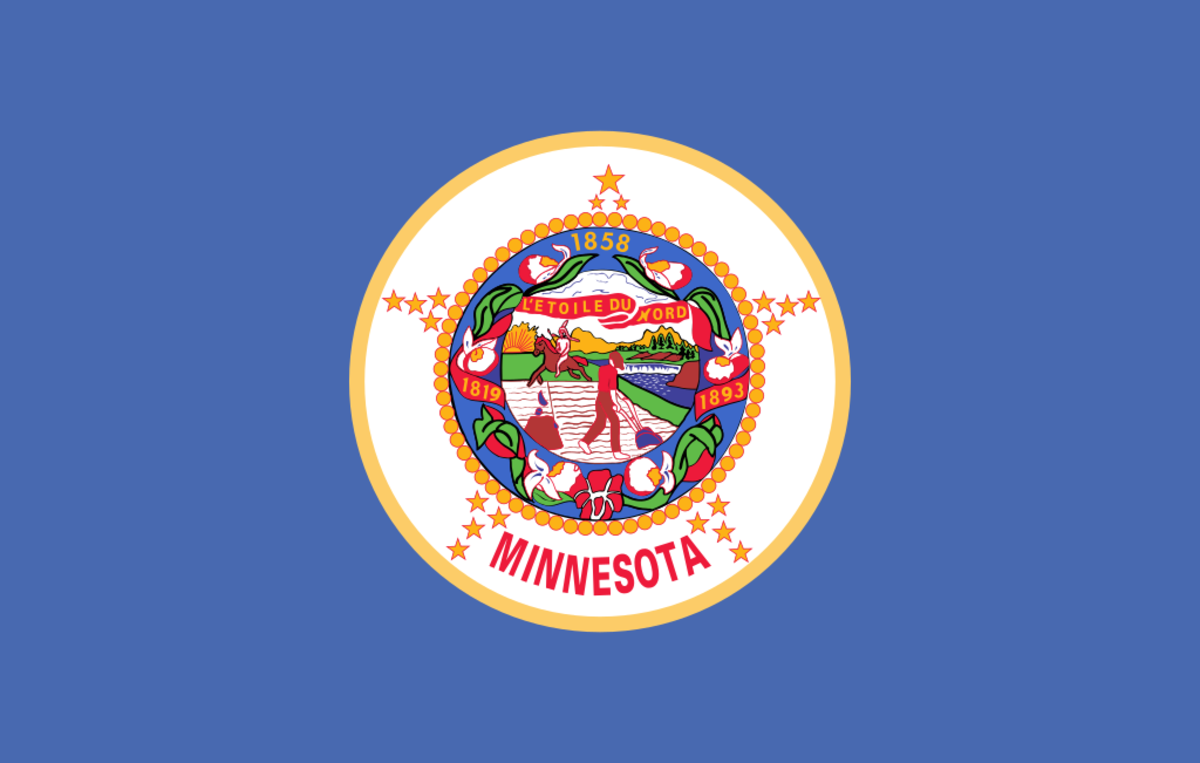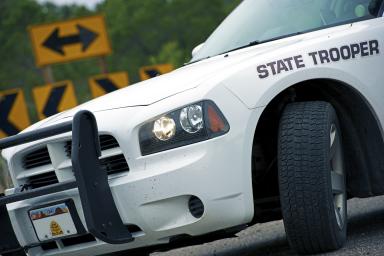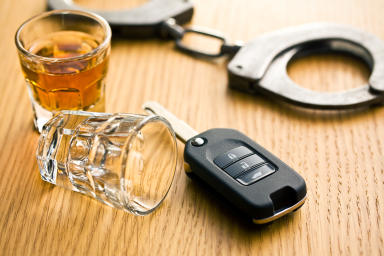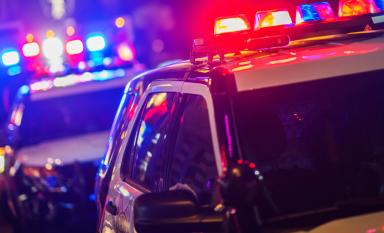Minnesota DWI Laws

According to Minnesota’s Office of Traffic Safety, it recorded 3,922 alcohol-related accidents in 2021, 74 of which were fatalities. On the other hand, the state's Department of Health says statistics show that about 1 in 7 Minnesotans has had at least one DWI. As a result, authorities are urging everyone to take responsibility for keeping the roads safe, especially on the state's most dangerous roadways, which include U.S. Highway 169, U.S. Highway 14, U.S. Highway 12, U.S. Highway 10, and Interstate 94. Owners and operators of motor vehicles who intend to drink or use drugs should not drive. If they must drive, they are advised to plan well to avoid consuming alcohol or medications that may impair their ability to drive.
This article presents some of Minnesota's DWI laws, personal responsibility rules, and other helpful resources for drunk driving crash victims and plaintiffs, as well as motor vehicle operators and other road users.
General DWI Laws in Minnesota
State legislators and authorities prohibit anyone from driving a motor vehicle while under the influence of alcohol or drugs. In Minnesota, there are two types of driving while impaired charges: per se DWI and impairment DWI. The distinctions between the two are shown in the table below.
Aggravating Factors
Certain conditions surrounding a DWI charge can raise punishment under Minnesota state law. These are some examples:
A prior drunk driving conviction within the past decade.
A BAC of 0.16% or higher.
Transporting a minor under the age of 16 in the vehicle at the time of the DWI offense.
A DWI offense while the driver's license is revoked, suspended, or canceled.
Underage Drinking and Driving Laws in Minnesota
The Not-a-Drop Law in Minnesota represents a zero-tolerance principle for underage drinking and driving. Anyone under the legal drinking age of 21 is strictly prohibited from drinking and driving in the state. They could be arrested and charged with DWI if they are caught driving with any measurable amount of alcohol in their system. Offenders under the age of 16 and drivers aged 18 with a BAC of 0.08% face charges in juvenile court. Meanwhile, vehicle operators aged 16 or 17 will be prosecuted as adults if their BAC during the arrest exceeds the legal limit.
Biking Under the Influence in Minnesota
DWI rules in Minnesota do not prohibit cyclists from riding their bikes while intoxicated since state laws do not recognize bikes as motor vehicles. This means that if a biker gets drunk and causes an accident, they cannot be punished with DWI or DUI; however, they may be prosecuted for public intoxication or battery.
While biking under the influence is not criminalized in the state, the Bicycle Alliance of Minnesota encourages bicycle operators to avoid riding while impaired because of its associated risks. According to a Johns Hopkins research, cyclists who are intoxicated are statistically less likely to use bicycle helmets. The study also discovered that a cyclist's risk of severe or fatal injury increases by 2,000 percent with a BAC of 0.08% or higher.
Minnesota's Implied Consent Law
The implied consent law states that any individual who operates, drives, or is physically in control of a motor vehicle in Minnesota or on any of the state's boundary waters consents to a chemical test of their breath, blood, or urine to determine the presence of alcohol or an intoxicating substance. The test must be administered following the request of an arresting police officer who has probable cause to believe that the person was driving, operating, or in physical control of a motor vehicle while impaired. The results of the examinations are often used in court to prove the subject's impairment.
Refusing and Failing a Chemical Test
Refusing an authorized test request may result in higher sanctions. The law enforcement officer will file a report with the DMV regarding the subject's refusal. The department will then suspend their driver's license for: one year for a first offense; two years if the driver has had one prior offense within the past decade; three years if the driver has had two prior violations within the past 10 years; four years if the person has had three prior offenses within the last decade; or six years if the driver has had four prior violations within the previous 10 years.
DUI-adjacent Laws in Minnesota
Minnesota's Open Bottle Law
The consumption of alcoholic drinks or the possession of an open container of liquor in a vehicle while on public roads, whether parked or in motion, is prohibited in Minnesota. This law applies to both sober and drunk drivers and passengers. Violations of the rules are considered strict liability offenses, which means that a driver can be held accountable for possessing an open container of alcohol in their automobile, whether they planned to or were negligent in doing so. Meanwhile, passenger vehicles such as limousines, buses, and pedal pubs are excluded from the rule. Passengers are allowed to consume or carry alcohol, but drivers are not permitted.
Cannabis Possession in a Motor Vehicle in Minnesota
In Minnesota, recreational marijuana possession is illegal. While there are no open-container marijuana regulations in the state, a person may face harsher penalties if the cannabis product is discovered in the passenger compartment of a car. Carrying a small amount of marijuana (42.5 grams or less) is considered a petty misdemeanor punishable by a fine of up to $300. On the other hand, possession of more than 1.4 grams in a vehicle's passenger area is a misdemeanor punishable by up to 90 days behind bars and a maximum $1,000 fine. A conviction also leads to a 30-day suspension of one's driver's license.
Boating While Intoxicated (BWI) Law in Minnesota
Minnesota is blessed with thousands of lakes, which makes boating an exciting adventure for residents and tourists alike. This activity also becomes more fun when there is booze. While it is not illegal to consume alcoholic beverages on a boat, given that the open container law does not apply to boats, the state prohibits operating a motorboat while intoxicated. According to the U.S. Coast Guard statistics, alcohol was a contributing factor to the 54 recreational boating accidents in the state between 2018 and 2022. The state's BWI law states that boat operators should abide by the legal BAC limit of 0.08%. Violating this rule will warrant the same criminal penalties as DWI cases.
What Are the Penalties for a DWI/DUI in Minnesota?
Depending on the number of violations, DWI offenders in Minnesota may face jail time, substantial fines, and license revocation or suspension. The table below explains the penalties individuals may face if they breach the state's DUI laws. If there are aggravating factors, such as injuring or killing another person, returning a high BAC result, or transporting a juvenile, the following penalties may be increased:
Whiskey Plates in Minnesota
Minnesota is one of only two states with whiskey plate regulations. Whiskey plates are license plates designed to help law enforcement identify drivers with a history of DWI offenses. Drivers charged with a third-degree or higher DWI will have their regular license plates replaced with special registration plates. However, drivers can now remove or avoid whiskey plates entirely by participating in an ignition interlock program, owing to a provision by the Minnesota Legislature enacted in 2021.
Minnesota Dram Shop Law and Social Host Liability Rule
Minnesota's dram shop legislation allows victims of drunk driving accidents to hold a licensed alcohol vendor liable for their injuries and damages caused by an impaired driver if they find out that the seller negligently served an obviously intoxicated patron or illegally sold alcoholic beverages to a minor. A plaintiff may pursue a claim against the commercial establishment if they can prove that the sale was a direct cause of the injuries or damages they suffered. Note that the law only protects innocent third parties impacted by the negligent actions of an impaired driver. This means the at-fault driver will not be able to file a claim against the vendor.
The state also enacted the social host liability rule, which holds a social host accountable for injuries or damages caused by an intoxicated guest. The legislation lets those injured in DWI accidents seek compensation for their losses against an adult social host or a non-alcohol seller who furnishes alcoholic drinks to an underage person who caused the accident or has control of the place where the alcohol consumption happened and knowingly or negligently lets the minor guest who caused the mishap drink alcohol. Unlike the dram shop legislation, the social host statute does not apply to people who serve alcohol to obviously drunk adults.
How Much Can Someone Sue for a Drunk Driving Injury in Minnesota?
Minnesota uses a modified comparative negligence system, which means that a vehicle accident plaintiff cannot receive compensation if the court determines that they bear more than 50% of the blame for the crash. A judge or jury, for instance, may decide that the total award for the plaintiff is $120,000. If they determine that the victim is 20% at fault for the incident, the plaintiff's total compensation is reduced to $96,000 because of their percentage of responsibility.
The value of settlement in a DWI/DUI accident claim will be calculated based on the following criteria:
The availability of evidence;
Whether the victim's actions contributed to the DWI crash;
The extent and nature of the victim's injuries or damages;
Age of the plaintiff at the time of the occurrence;
Whether the victim is expecting a full medical recovery.
A plaintiff may be awarded both compensatory (economic and non-economic) and punitive damages. Economic damages include current and future healthcare bills, lost earnings, car or property repair costs, and burial expenses. Non-economic losses include pain and suffering, emotional distress, and loss of consortium. On the other hand, a victim can only seek punitive damages if they can prove that the intoxicated driver knowingly ignored the rights and safety of others.
There is no fixed amount of compensation for DUI accidents because every case has unique contributing factors. Victims must consult a competent DUI or personal injury attorney to ensure they receive the maximum compensation they deserve.
The Statute of Limitations in Minnesota
A statute of limitations establishes the maximum time that parties have from the date of the alleged offense to commence legal action. Minnesota's statutory filing deadline for drunk driving accident lawsuits is two years. This means a DUI crash victim needs to file a suit requesting civil remedy for their losses within two years from the date of the accident. For wrongful death claims, the statute of limitations begins on the day of the victim's death and can last up to three years. If a plaintiff misses the two-year deadline, their case might be dismissed, and they will not be able to recover compensation from the at-fault party.
Exceptions
According to Minnesota Statutes Section 541.15, the clock will only start counting once the individual involved in the DUI accident who is under 18 or legally insane reaches the legal age or recovers. Any lawsuit or claim must be brought within one year of the plaintiff's recovery from insanity. Additionally, if a claim or lawsuit has not yet been filed and the potential defendant leaves the state, the period of the defendant's absence will not be counted as part of the two-year countdown to the decree's deadline.
Resources for Folks Injured by an Impaired Driver in Minnesota
DUI accidents significantly impact people's lives, as they cause injuries and sometimes death. Given that drunk driving cases can be complicated, victims should have access to effective legal and survivor support services. This section lists some resources readily available to injured people and families whose loved ones suffered fatal injuries caused by an impaired driver.
Minnesota Lawyer Referral and Information Service (MNLRIS)
The MNLRIS is a nonprofit organization that provides legal assistance to residents across the state. Its referral counselors assist clients in examining their legal difficulties and selecting an attorney from a roster of more than 200 lawyers. They also provide access to various pertinent resources that help citizens learn about state legislation concerning their cases. The MNLRIS requires a $39 administrative fee to keep the service available to the public. The fee, however, is waived for personal injury cases.
For further information, drunk driving accident victims in Minnesota can contact (612) 752-6699 or submit an email to mnlris@mnbars.org. They can also read answers to frequently asked questions about the state's automobile and driving rules.
Injury Law Rights - Minnesota
Injury Law Rights is committed to providing legal assistance for people around the country, including Minnesota, in navigating their personal injury cases. It connects victims of vehicle accidents, like DUI crashes, with pro bono lawyers to help them evaluate their choices for filing an injury claim or lawsuit. Injury Law Rights also links prospective clients with professionals who may provide free case reviews and other information about the elements involved in their cases. Minnesota residents can contact Injury Law Rights at 1-855-633-0888.
Mothers Against Drunk Driving Minnesota
MADD Minnesota offers victim services to survivors and families of those killed in drugged and drunk driving crashes, all at no charge. It has compassionate volunteers who can help victims and their families by providing emotional support and guidance through the civil and criminal justice systems. Volunteers can accompany victims and survivors to court. MADD also helps victims with victim impact statements and referrals to appropriate resources for additional assistance. Additionally, survivors looking for supportive materials on victimization topics may also request them from the organization. Moreover, DUI accident victims or their families can reach out to a victim advocate in their area through MADD's helpline at 1-877-MADD-HELP (1-877-623-3435).
Minnesota Court Records Online (MCRO)
Residents can view various public Minnesota state district court records and papers online through MCRO. The platform includes four search options to make it easier for site users to access and download documents.
Users can utilize Case Search to locate court cases by person name, company name, lawyer's name, attorney bar number, case number, or citation number.
Document Search enables users to search for public papers in court cases that are available online by case number.
Hearing Search looks for hearings planned in a court case.
Judgment Search lets users search docketed money decisions by debtor name for judgment details, including any satisfactions.
For additional information, people can read the frequently asked questions section. They can also visit the official website of the Minnesota State Law Library.
Minnesota Crash Record Request
Fill out a Crash Record Request Form (PS2503) and mail it to the address on the form or bring it to the DVS Records/Evaluation Counter at 445 Minnesota Street in St. Paul. Requests will only be processed if an authorized requestor, such as a person involved in the accident, a person listed on the police report, a legal representative, or an insurance agent, signs them. A $5 search charge is required for all report requests. If a fatality occurs, the next of kin or legal representative must provide proof of death.
Expertise.com StaffAuthor
Step into the world of Expertise.com, your go-to hub for credible insights. We don't take accuracy lightly around here. Our squad of expert reviewers, each a maestro in their field, has given the green light to every single article you'll find. From rigorous fact-checking to meticulous evaluations of service providers, we've got it all covered. So feel free to dive in and explore. The information you'll uncover has been stamped with the seal of approval by our top-notch experts.




